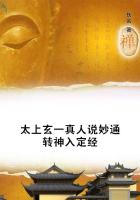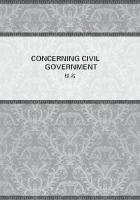These documents possess peculiar and unique value;that of Paes because it gives us a vivid and graphic account of his personal experiences at the great Hindu capital at the period of its highest grandeur and magnificence --"things which I saw and came to know"he tells us --and that of Nuniz because it contains the traditional history of the country gathered first-hand on the spot,and a narrative of local and current events of the highest importance,known to him either because he himself was present or because he received the information from those who were so.The summaries of the well-known historians already alluded to,though founded,as I believe,partly on these very chronicles,have taken all the life out of them by eliminating the personal factor,the presence of which in the originals gives them their greatest charm.Senhor Lopes,who has published these documents in the original Portuguese in a recent work,[4]writes in his introduction:"Nothing that we know of in any language can compare with them,whether for their historical importance or for the deion given of the country,and especially of the capital,its products,customs,and the like.The Italian travellers who visited and wrote about this country --Nicolo di Conti,Varthema,and Federici --are much less minute in the matter of the geography and customs of the land,and not one of them has left us a chronicle."They are indeed invaluable,and throw an extraordinary light on the condition of Vijayanagar as well as on several doubtful points of history.
Thus,for instance,we have in Nuniz for the first time a definite account of the events that led to the fall of the First Dynasty and the establishment of the second by the usurpation of Narasimha.Previous to the publication of these chronicles by Senhor Lopes we had nothing to guide us in this matter,save a few vague and unsatisfactory lines in the chronicle of the historian Firishtah.[5]Now all is made clear,and though as yet the truth cannot be definitely determined,at least we have an explicit and exceedingly interesting story.Paes too,as well as Nuniz,conclusively proves to us that Krishna Deva Raya was really the greatest of all the kings of Vijayanagar,and not the mere puppet that Firishtah appears to consider him (Firishtah does not mention him by name);for Paes saw him on several occasions and speaks of him in warm and glowing terms,while Nuniz,whose narrative was evidently firsthand,never so much as hints that his armies were led to victory by any other general but the king himself.Nuniz also gives us a graphic deion from personal knowledge of the character of Krishna's degenerate successor Achyuta,whose feebleness,selfishness,cowardice,and cruelty paved the way for the final destruction of the great empire.
By the side of these two chronicles the writings of the great European historians seem cold and lifeless.
I have mentioned the publication of Senhor Lopes.It is to that distinguished Arabic scholar that we owe the knowledge of the existence of these precious documents.He it was who brought them to light in the first instance,and to him personally I owe the fact of my being able to translate and publish them.His introduction to the DOSREIS DE BISNAGA is full of valuable matter.India owes him a debt of gratitude for his services;and for myself I desire to record here my sincere thanks for the disinterested and generous help he has so constantly accorded to me during the last two years.
My thanks are also due to Mr.Donald Ferguson for his careful revision of the whole of my translations.
I desire further to express my appreciation of a particular kindness done to me by Colonel R.C.Temple,C.I.E.,and lastly to acknowledge gratefully the liberality of H.E.the Governor of Madras and the Members of his Council,who by subsidising this work have rendered its publication possible.
I trust that my remarks regarding the causes of the downfall of Portuguese trade in the sixteenth century will not be misunderstood.It is not in any spirit of criticism or comparison that I have written those passages.History,however,is history;and it is a fact that while the main cause of the small success which attended the efforts of the Portuguese to establish a great and lasting commerce with India was no doubt the loss of trade after the destruction of Vijayanagar,there must be added to this by the impartial recorder the dislike of the inhabitants to the violence and despotism of the Viceroys and to the uncompromising intolerance of the Jesuit Fathers,as well as the horror engendered in their minds by the severities of the terrible Inquisition at Goa.
A word as to my spelling of names.I have adopted a medium course in many cases between the crudities of former generations and the scientific requirements of the age in which we live;the result of which will probably be my condemnation by both parties.But to the highly educated I would point out that this work is intended for general reading,and that I have therefore thought it best to avoid the use of a special font of type containing the proper diacritical points;while to the rest I venture to present the plea that the time has passed when Vijayanagar needs to be spelt "Beejanuggur,"or Kondavidu "Condbeer."
Thus I have been bold enough to drop the final and essential "a"of the name of the great city,and spell the word "Vijayanagar,"as it is usually pronounced by the English.The name is composed of two words,VIJAYA,"victory,"and NAGARA,"city,"all the "a's"to be pronounced short,like the "u"in "sun,"or the "a"in "organ.""Narasimha"ought,no doubt,to be spelt "Nrisimha,"but that in such case the "ri"ought to have a dot under the "r"as the syllable is really a vowel,and I have preferred the common spelling of modern days.(Here again all three "a's"are short.)As with the final "a"in "Vijayanagara,"so with the final "u"in such names as "Kondavidu"--it has been dropped in order to avoid an appearance of pedantry;and I have preferred the more common "Rajahmundry"to the more correct "Rajamahendri,""Trichinopoly"to "Tiruchhinapalle,"and so on.
This system may not be very scientific,but I trust it will prove not unacceptable.
The name of the capital is spelt in many different ways by the chroniclers and travellers.The usual Portuguese spelling was "Bisnaga;"but we have also the forms "Bicheneger"(NIKITIN),"Bidjanagar"(ABDUR RAZZAK),"Bizenegalia"(CONTI),"Bisnagar,""Beejanuggur,"&c.
A Forgotten Empire:Vijayanagar















